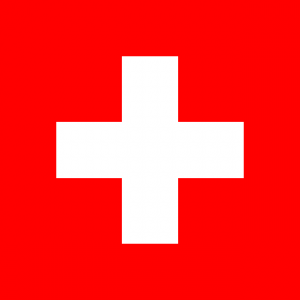Language/Swiss-german/Vocabulary/Days-of-the-Week
Hi Swiss German learners! 😊
In this lesson, we are going to dive into the days of the week in Swiss German, and discover some interesting cultural facts along the way. Swiss German, like many other Germanic languages, has unique words for the days of the week that differ from those of standard German. Don't worry if it seems overwhelming at first, with practice and immersion, you will soon see progress. 😊
Once you've mastered this lesson, take a look at these related pages:Drinks, Animals, Geography & Education.
Basic Vocabulary[edit | edit source]
Let's begin with the basic vocabulary:
| Swiss German | Pronunciation | English |
|---|---|---|
| Mäntig | ˈmɛn.tik | Monday |
| Zischtig | ˈtsɪʃ.tɪk | Tuesday |
| Mitwuch | ˈmɪt.vʊx | Wednesday |
| Dunschtig | ˈdʊn.ʃtɪk | Thursday |
| Friitig | ˈfri.tɪk | Friday |
| Samschtig | ˈsam.ʃtɪk | Saturday |
| Sunntig | ˈsun.tik | Sunday |
Here some pronunciation tips to help you:
- "ch" is a tricky Swiss German letter that often causes problems for learners. However, it's essential to master as it appears in nearly every sentence. It is pronounced like the "ch" in "loch" or the "ck" in "rock."
- "eu" may sound like "oy" in some regions and can be pronounced as "æu" in others (like in the word "go").
- Lastly, "i" is pronounced like "ee" in English.
So, if you want to say "Monday" in Swiss German, it's "Mäntig." Say it slow: "mehn-teek." Great job! Keep practicing! 😊
Cultural Insights[edit | edit source]
Switzerland has four official languages: German, French, Italian, and Romansh. Swiss German is the most widely spoken language in the country, with over five million people calling it their mother tongue. The Swiss are well-known for being punctual, and this trait is often demonstrated in the language itself. As you probably noticed, Swiss German words for the days of the week tend to be shorter and therefore quicker to say than their English equivalents.
Another interesting fact is that the Swiss-German word for Wednesday, "Mitwuch," is often referred to as "Mittwoch," which is familiar to speakers of standard German.
Dialogues[edit | edit source]
1. Let's begin with a simple dialogue to practice the days of the week:
- Person 1: "Was möchtesch am Mäntig mache?" (What do you want to do on Monday?)
- Person 2: "Am Mäntig muess ich zom Doktor gah." (On Monday I have to go to the doctor.)
2. Now let's have a dialogue that includes different days of the week:
- Person 1: "Wänn chunsch du zrugg vu dine Ferie?" (When do you come back from your vacation?)
- Person 2: "Am Samschtig, leider." (On Saturday, unfortunately.)
- Person 1: "Ich bin am Sunntig meh ganget." (I went more on Sunday.)
Keep practicing in real-life situations, and you will soon be able to communicate effectively in Swiss German! 😊
Conclusion[edit | edit source]
Congratulations! You've learned the days of the week in Swiss German, practiced basic dialogues, and gained some cultural insights about Switzerland. Vocabulary is only the first step in language learning. Keep practicing, listening, and speaking as much as you can. To improve your Swiss German Vocabulary, you can also use the Polyglot Club website. Find native speakers and ask them any questions!
➡ If you have any questions, please ask them in the comments section below.
➡ Feel free to edit this wiki page if you think it can be improved. 😎
Sources[edit | edit source]
Congratulations on finishing this lesson! Explore these related pages to keep learning:Count to 10, How to Say Goodbye in Swiss German, Fruits & Express Surprise.
Other Lessons[edit | edit source]
- How to Say Hello and Greetings
- Drinks
- Clothes
- Express Surprise
- Health
- How to say Good Bye
- Education
- Tongue twisters
- Fruits

